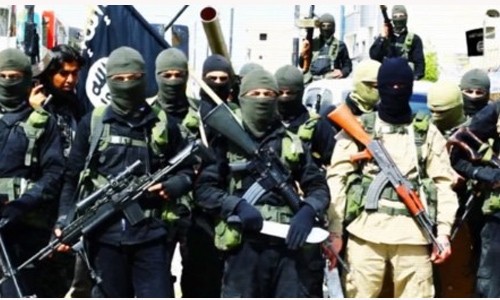UK jets target ISIS oilfield and group's income, defense ministry says
British fighter jets targeted an oilfield held by ISIS in their first airstrikes in Syria, the British defense ministry said.
Late Wednesday, U.K. lawmakers voted 397 to 223 in favor of bombingISIS in Syria, after rejecting military intervention there in a 2013 vote.
Four RAF Tornadoes were deployed from Akrotiri air base in Cyprus soon after Parliament authorized strikes, returning early Thursday, the ministry said.
In a statement, the ministry said the exploitation of seized oilfields was the "mainstay of Daesh's financial income." Daesh is another term used to refer to ISIS.
"Overnight, RAF Tornado GR4s, supported by a Voyager air refuelling tanker and a Reaper, and operating in conjunction with other coalition aircraft, employed Paveway IV guided bombs to conduct strikes against six targets within the extensive oilfield at Omar, 35 miles inside Syria's eastern border with Iraq," it said.
"The Omar oilfield is one of the largest and most important to Daesh's financial operations, and represents over 10% of their potential income from oil."
The ministry said specific elements of the oilfield had been targeted "ensuring the strikes will have a significant impact on Daesh's ability to extract the oil to fund their terrorism." Initial analysis indicated the strikes had been successful, the statement said.
The MOD tweeted that Britain was also doubling the UK strike force against ISIS by sending two additional Tornados and six Typhoon jets to the RAF base at Akrotiri.
After the November 13 terror attacks in Paris, France asked the U.S.-led coalition to bump up the military offensive against ISIS.
U.S. President Barack Obama welcomed the British move and said the coalition would work "to integrate them into our coalition air tasking orders as quickly as possible."
Now that Britain has decided to expand airstrikes that it previously conducted only in Iraq, the spotlight is on the German Parliament, which also is expected to approve greater military commitment against the terror group.
The German plan would activate 1,200 troops in anti-ISIS efforts, but in a support role -- not direct combat.
Germany has not committed to airstrikes, and its post-World War II constitution hinders it in participating in battle on foreign soil.
Related Posts

